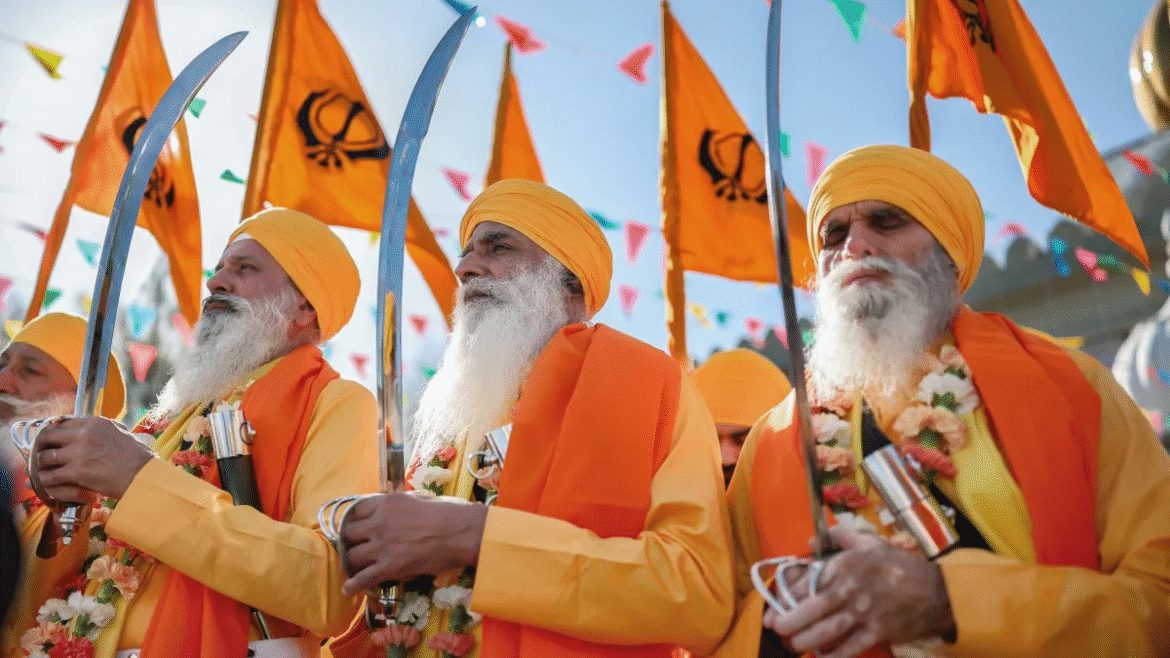AI Generated Summary
- As Lord Singh of Wimbledon wrote in a recent legal notice to the UK government, a broad definition of Islamophobia — especially one rooted in the idea of “targeting expressions of Muslimness” — risks branding Sikhs’ own deeply held practices and historical truths as hate speech.
- For British Sikhs, this is not a question of denying anti-Muslim hatred — it is about protecting the integrity of their own identity, their freedom to speak truthfully about history, and their right to practice and express their religion without being mischaracterized as racists, Islamophobes, or “extensions” of someone else’s narrative.
- ” From the post-9/11 murder of Balbir Singh Sodhi in the US to the attack on Ravneet Singh outside Parliament in 2018, Sikhs have repeatedly been victims of hate crimes due to mistaken identity — their turbans seen as markers of “foreignness” or Islam.
The United Kingdom’s renewed efforts to craft a formal “definition of Islamophobia” have been met with strong opposition — not from critics of Muslims, but from communities like the Sikhs, who fear that this framework paints over vital distinctions among faiths, histories, and identities.
For British Sikhs, this is not a question of denying anti-Muslim hatred — it is about protecting the integrity of their own identity, their freedom to speak truthfully about history, and their right to practice and express their religion without being mischaracterized as racists, Islamophobes, or “extensions” of someone else’s narrative.
The Network of Sikh Organisations (NSO), representing over 130 gurdwaras and community groups across Britain, has publicly warned that the UK government’s flirtation with the proposed definition could inadvertently discriminate against other faiths and restrict free expression. As Lord Singh of Wimbledon wrote in a recent legal notice to the UK government, a broad definition of Islamophobia — especially one rooted in the idea of “targeting expressions of Muslimness” — risks branding Sikhs’ own deeply held practices and historical truths as hate speech.
One clear example lies in the Sikh rejection of halal meat, which the faith explicitly prohibits. Sikhs have always opposed non-stun or ritual slaughter on ethical grounds — long before modern debates on religion and animal welfare. Yet under the proposed definition, that position could be deemed Islamophobic, because it critiques something considered an “expression of Muslimness.” The result? A moral teaching central to Sikh dharam suddenly becomes racially offensive in legal terms.
Beyond that, the definition’s wording has deep implications for historical memory. Sikh scholars have long documented how the ninth Sikh Guru, Guru Tegh Bahadur, sacrificed his life defending religious freedom when Hindus were being coerced under Mughal rule. Discussing such “historical truths,” however, could fall foul of interpretive frameworks that list “accusing Muslims of spreading Islam by the sword” as Islamophobic rhetoric. That is not just historically absurd — it is an offense against Guru Tegh Bahadur’s supreme martyrdom and the Sikh mission of Sarbat da Bhala (welfare of all).
This blurring of lines is especially painful because Sikhs have paid heavily for the confusion between “Muslim appearance” and “Islamic identity.” From the post-9/11 murder of Balbir Singh Sodhi in the US to the attack on Ravneet Singh outside Parliament in 2018, Sikhs have repeatedly been victims of hate crimes due to mistaken identity — their turbans seen as markers of “foreignness” or Islam. Yet when British authorities adopt frameworks centered on “Islamophobia,” they unintentionally create a hierarchy of victimhood, where anti-Sikh hate is either ignored or mis-recorded under someone else’s category.
The Sikh community is not seeking preferential treatment — only clarity and equality. Recognition of anti-Sikh hate in its own right, and an honest understanding that opposing one kind of prejudice must not erase another, are essential for any just society. Sikhs know too well the perils of religious labelling by appearance. They have fought for centuries on the principle that truth cannot be silenced by fear of offense.
In opposing the flawed Islamophobia definition, Sikhs are standing for something larger than themselves: the defense of free, fair, and fearless speech — and the right of all faiths to exist on equal terms before the law.
Because if faith identities become interchangeable under ambiguous legal definitions, no community — not Muslims, not Sikhs, not anyone — will be truly protected.




